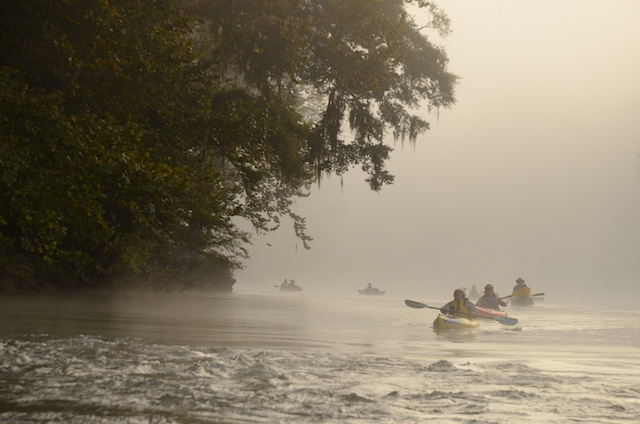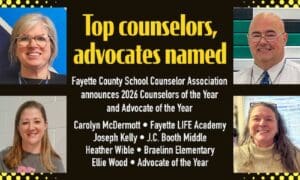Georgia school teachers will have the opportunity to join the country’s largest week-long canoe/kayak camping adventure and receive environmental education training for free as part of Georgia River Network’s Paddle Georgia 2016.
Paddle Georgia’s Educator’s Scholarship Program sponsored by Dalton Utilities, Mohawk Carpet Foundation and the Coosa River Basin Initiative will provide complimentary registrations valued at $425 to Georgia teachers in grades K-12. The journey begins June 18 on the Conasauga River near Dalton and Chatsworth and ends June 24, 103 miles downstream on the Coosa River in Rome.
Recipients of the Paddle Georgia Educator Scholarships will paddle for seven days while receiving training in Project WET environmental education curriculum and Georgia Adopt-A-Stream water monitoring protocol.
“The goal of the program is to have teachers use their experiences on the river and in the workshops to incorporate environmental education in their classrooms,” said Joe Cook, Paddle Georgia coordinator.
Paddle Georgia is an annual canoe and kayak journey that takes place on a different Georgia river each year. In the event’s first 11 years, Georgia River Network has guided more than 3600 people down 13 Georgia rivers and generated more than $300,000 for river protection. More than 70 Georgia educators have participated in the scholarship program.
The scholarships have been made possible through the financial support of Dalton Utilities and Mohawk Carpet Foundation through the Coosa River Basin Initiative.
Educators must apply using forms at www.garivers.org/paddle_georgia. All scholarship applications must be received by April 15. Winners of the scholarships will be announced April 20.
The 2016 edition of Paddle Georgia will introduce paddlers to northwest Georgia’s Ridge and Valley region and North America’ most biologically unique river basin. The upper Coosa River system is home to 30 different species of fish, mussels, snails and crayfish that are found nowhere else in the world.
Daily paddle trips will average about 15 miles, and each night participants will camp at nearby facilities such as schools and parks. In addition to spending each day on the river, paddlers will have the opportunity to explore everything from historic sites to water treatment facilities.
“The trip is much more than just a paddle,” said Cook, “The goal is to show people not only the river’s beauty but also how we use and depend on the river for everything from our drinking water to producing electricity. It’s an educational adventure.”
The trip is suitable for novice paddlers as well as experienced paddlers. Paddlers range in age from four to 84, with many families participating.













Leave a Comment
You must be logged in to post a comment.